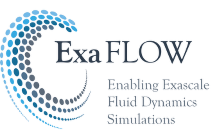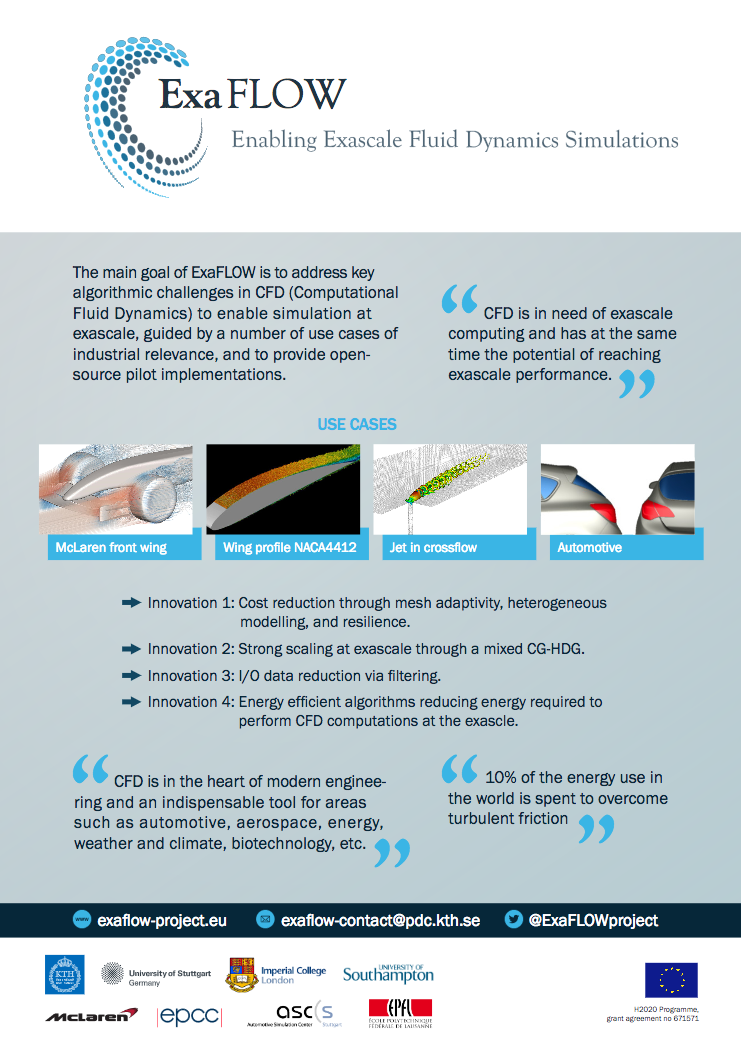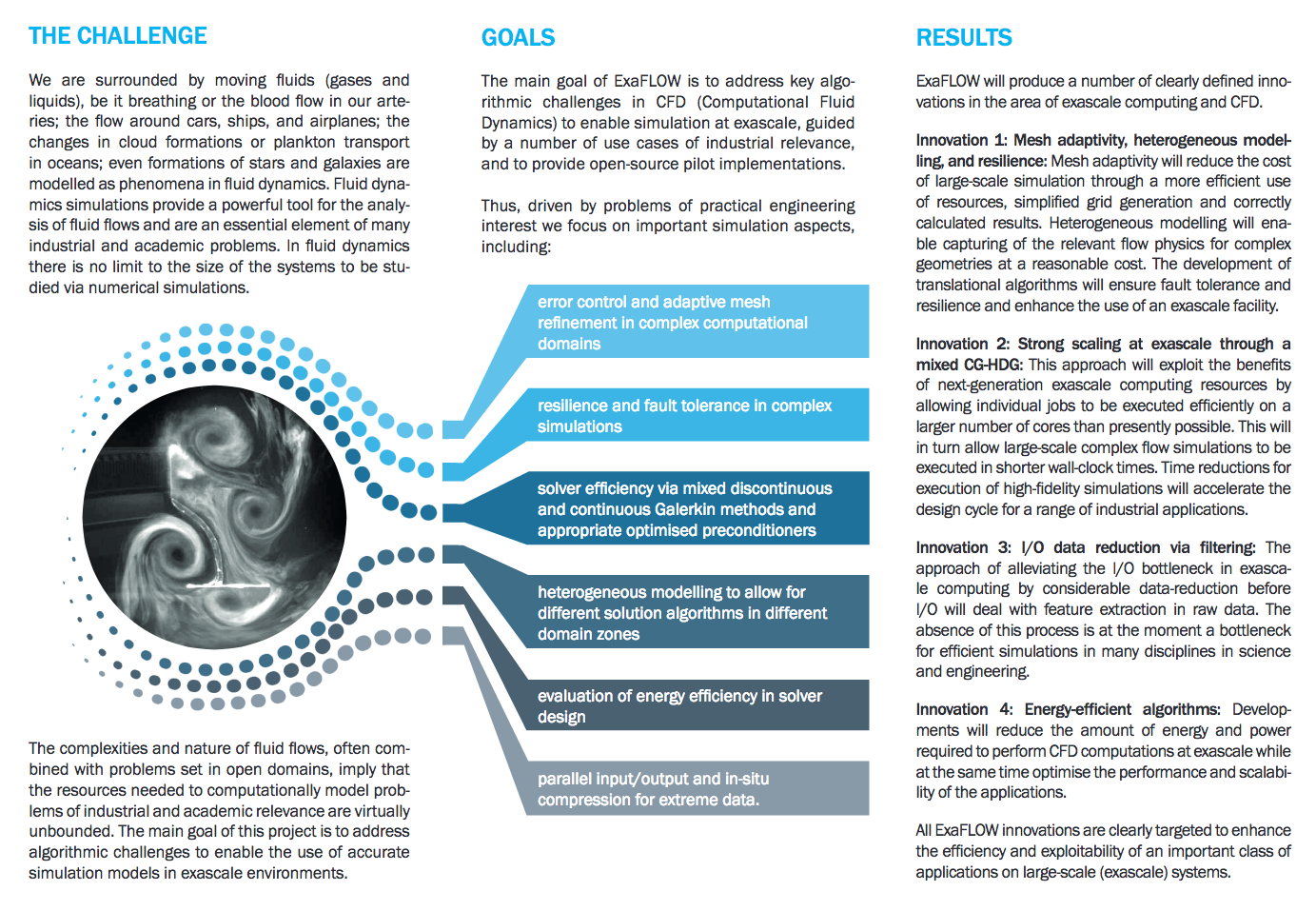The complexities and nature of fluid flows, often combined with problems set in open domains, implies that the resources needed to computationally model problems of industrial and academic relevance is virtually unbounded. FD simulations therefore are a natural driver for exascale computing and have the potential for substantial societal impact, like reduced energy consumption, alternative sources of energy, improved health care, and improved climate models.
The main goal of this project is to address algorithmic challenges to enable the use of accurate simulation models in exascale environments. Driven by problems of practical engineering interest we focus on important simulation aspects including:
• error control and adaptive mesh refinement in complex computational domains,
• resilience and fault tolerance in complex simulations
• heterogeneous modeling
• evaluation of energy efficiency in solver design
• parallel input/output and in-situ compression for extreme data.
The algorithms developed by the project will be prototyped in major open-source simulation packages in a co-design fashion, exploiting software engineering techniques for exascale. We are building directly on the results of previous exascale projects (CRESTA, EPiGRAM, etc.) and will exploit advanced and novel parallelism features required for emerging exascale architectures. The results will be validated in a number of pilot applications of concrete practical importance in close collaboration with industrial partners.
Download project dissemination material here:





